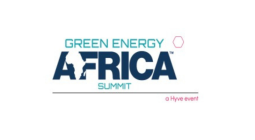EU announces 'full switch' of existing grey hydrogen production to green H2, backed by carbon contracts
The European Commission (EC) will roll out carbon contracts for difference (CCfD) subsidies (see panel below) for green hydrogen using cash from its Innovation Fund “to support a full switch of the existing hydrogen production in industrial processes from natural gas to renewables and the transition to hydrogen-based production processes in new industrial sectors such as steel-making”.
As previously announced, the new REPowerEU plan sets a target for ten million tonnes of green hydrogen to be produced in the EU by 2030, with a further ten million tonnes imported. The combined 20 million tonnes would require approximately 600GW of new wind and solar power, and 200GW of electrolysers.
“The Commission will roll out carbon contracts for difference to support the uptake of green hydrogen by industry and specific financing for REPowerEU under the Innovation Fund, using emission trading revenues to further support the switch away from Russian fossil fuel dependencies.”
Repeated mentions of “renewable and fossil-free hydrogen” suggest that there is no room for blue H2 subsidies in the EU plans.
The EC says it will “consider” a joint purchasing mechanism to buy in renewable H2 at scale at a low price.
“Hydrogen imports will be facilitated by a new dedicated work stream under the EU Energy Platform which should operationalise the European Global Hydrogen Facility and support Green hydrogen partnerships, which will kick-start the global renewable hydrogen market,” it said.
Other measures include boosting domestic hydrogen production “through swift adoption of state aid decisions on IPCEIs [important projects of common European interest], for which a complete assessment will be finalised by the summer, and by topping up of Horizon Europe investments in the Hydrogen Joint Undertaking (€200 million) to double the number of Hydrogen Valleys [ie, industrial hubs]”.
The EC said it is “committing to finalising the regulatory framework for hydrogen”, as well as publishing draft legislation “to define and boost the production and market development of renewable hydrogen within Europe”.
“To accelerate the hydrogen market increased sub-targets for specific sectors would need to be agreed by the co-legislators. The Commission is also publishing two Delegated Acts [in the coming days] on the definition and production of renewable hydrogen to ensure that production leads to net decarbonisation.”
It added: “The Commission will also support the development of three major hydrogen import corridors via the Mediterranean, the North Sea area and, as soon as conditions allow, with Ukraine.
“Work should also accelerate with industry on technical hydrogen standards and expedition of authorisation procedures for hydrogen infrastructure.”
More money will also be made available for the transportation of hydrogen.
“In parallel, Commission proposes the next steps in the development of dedicated hydrogen infrastructure and towards a European Hydrogen Backbone, including electrolysers for producing hydrogen, EU-internal pipelines and storage.
“In addition, shipping transport capacity for hydrogen also needs to be developed. Financial support will be provided by unlocking new financing options for renewable hydrogen projects under the TEN-E regulation and mobilising EU funding under the Connecting Europe Facility, Cohesion Policy, the Common Agricultural Policy, and the Recovery and Resilience Fund.”
REPowerEU also suggests that existing renewable energy projects will not allowed to be used to produce green hydrogen under its “additionality” principle, including in exporting countries.
“To avoid the risk that investments in renewable energy may be diverted from the energy transition in partner countries to the production of renewable hydrogen as export commodity, strict standards will ensure that renewable hydrogen imports to the EU can only be produced from additional renewable energy sources. This is particularly relevant for instance in sub-Saharan Africa where countries have also the additional challenge to address energy access.”
Leigh Collins | https://www.rechargenews.com/



